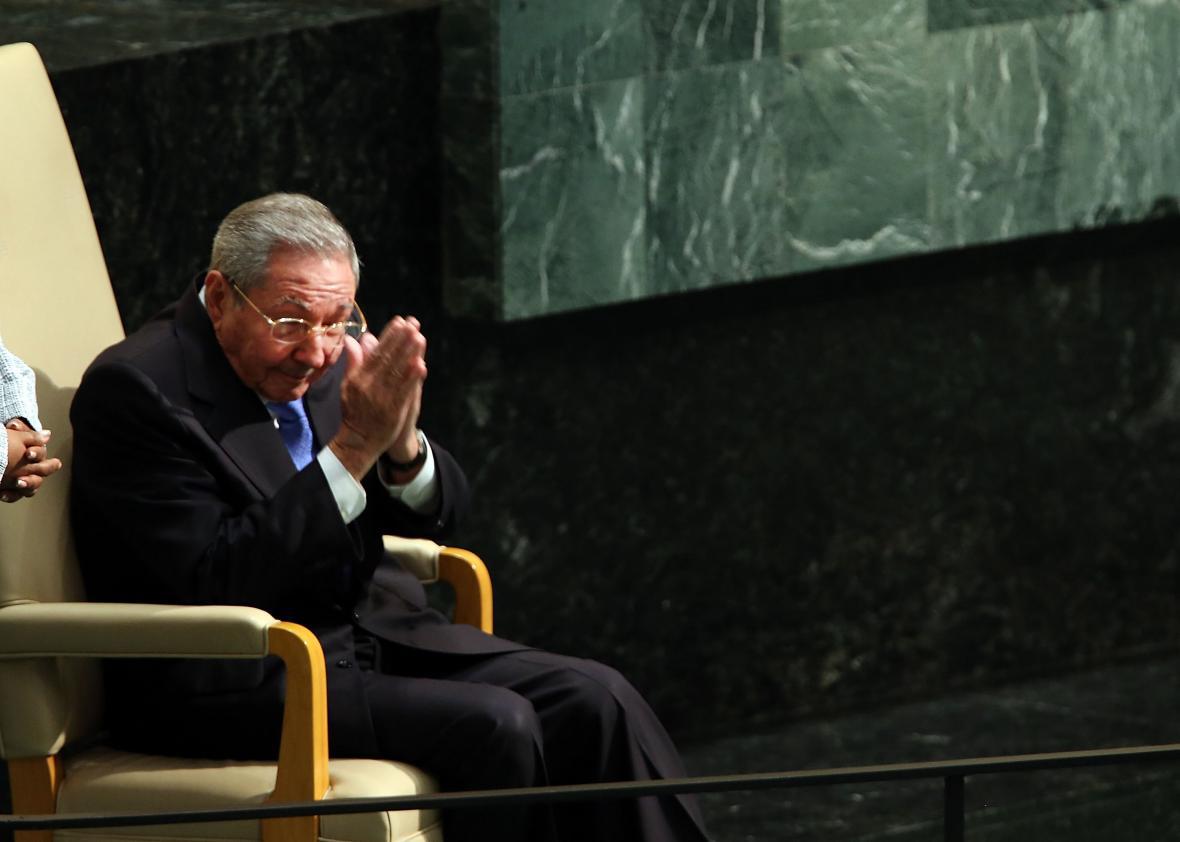Raul Castro was one of the most highly anticipated speakers at this year’s U.N. General Assembly. Not only was it the 84-year-old Cuban president’s first address to the body since taking over from his brother, Fidel, in 2008 and his first visit to the United States in 56 years, but Castro’s speech comes after the historic normalization of diplomatic relations between the United States and Cuba.
But Castro made it very clear on Monday that he has no intention of lavishing gratitude on the United States. After coming to the lectern to enthusiastic applause from the gallery, he launched into a long speech that included discussions of climate change; Syria; the refugee crisis; expressions of Cuban support for the governments of Venezuela, Ecuador, Argentina, and Brazil; and the “people of Puerto Rico [who] deserve to be free and independent after more than a century of colonial domination.” Only at the very end of his speech did Castro bring up the change in relations with the United States.
Castro finally acknowledged that “diplomatic relations have been re-established between Cuba and the United States of America” after “56 years of heroic resistance.” But he also stated that the full normalization of relations “will only be achieved with the end of the economic commercial and financial blockade against Cuba.” He also demanded “the return of the territory illegally occupied by the Guantanamo base,” the end of U.S.-sponsored anti-government broadcasting, and compensation for the economic damage caused by the embargo.
The Cuban embargo has been a particular sore spot for the United States in the General Assembly, which has voted annually with near unanimity to condemn it 23 times. (Only Israel and a few Pacific island states generally support the U.S.) Castro acknowledged this, expressing the “eternal appreciation of the Cuban people and government” to the governments that voted against the embargo. As Obama acknowledged in his own speech, only Congress can fully lift the embargo. The U.S. is reportedly considering abstaining for the first time when the issue comes up for its annual vote later this year—a rare case of a nation not opposing international condemnation of its own policy that would only be thinkable in the context of today’s partisan divide in Washington.
Castro also referred to, and quoted from, his older brother’s famous 1959 General Assembly speech, which at four and a half hours still holds the record for length. Raul mercifully kept his remarks a little briefer.
